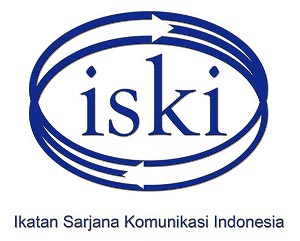CULTURAL REFLECTION IN INDOMIE SPESIAL RAMADHAN 2020 ADVERTISEMENT
Abstract
Advertising is a promotional medium that is still considered important today. There is a series of advertisements that caught our attention because they were viral in the community, namely the Sebelum Berbuka and Selamat Berbuka of the Ramadan version of Indomie goreng. Ads that are displayed without displaying this product are very contextual to the situation of Ramadan 2020, especially at the time of the Covid-19 pandemic. This research tries to reveal the meaning conveyed through these advertisements by looking in more detail at the elements of icons, indexes and symbols. The research method uses Charles Sanders Pierce's semiotic analysis, by identifying, analyzing and classifying icons, indexes and symbols with the aim of expressing the meaning the advertisement that wants to convey. The meaning construction created by Indomie advertisements in the month of Ramadan is different from most instant noodle advertisements in general. Even though the ultimate goal of advertising is still to sell products, from this analysis it is found that there are other messages that are very contextual, namely: an invitation to fast with good intentions and during this Covid-19 audiences are invited to stay at home. This ads seems to understand the needs of the target audience, especially young people. The absence of advertised products makes these products present in the minds of consumers. This is interpreted as a norm of politeness and respect for Muslims who fast in Ramadan.
Keywords
Full Text:
PDFReferences
Budiman, K. (2011). Semiotika Visual. Yogyakarta: Jalasutra.
Danesi, M. (2004). Pesan, Tanda dan Makna: Buku Teks Dasar mengenai Semiotika dan Teori Komunikasi. Yogyakarta: Jalasutra.
IDN Times. (2019). 6 Negara dengan Konsumsi Mie Instan Terbanyak Di Dunia, Ada Indonesia! Diunduh pada 2 Maret 2021 di https:// www. idntimes. com/news/world/ muham-mad-imam-maulana /6-negara -de-ngan-konsumsi-mie-instan-terbanyak -di-dunia-ada-indonesia-c1c2-1/6
Kasali, R. (1995). Manajemen Periklanan Konsep dan Aplikasinya. Jakarta, PT Pustaka Utama Grafiti.
Keegan, Warren J., Green, Mark C. (2015). Global Marketing : 8th Edition. New York City: Pearson.
Kotler, Amstrong. (2001). Prinsip-prinsip pemasaran, Edisi kedua belas, Jilid 1. Jakarta: Erlangga
Lee, M & Johnson, C. (2011). Prinsip-prinsip Pokok Periklanan dalam Perspektif Global, Ed. 1, Cet. 3. Jakarta: Kencana
Lidwina, A. (12 Nov 2019). Kuartal III-2019, Penjualan Mi Instan Indofood Rp 21,7 Triliun. Diunduh pada 2 Maret 2021 di https:// databoks. katadata. co.id/datapublish/2019/11/12/kuartal-iii-2019-penjualan-mi-instan-indofood-capai-rp-217-triliun
Simpson, Craig. (2016). The Advertising Solution: Influence Prospects, Multiply Sales, and Promote Your Brand. Enterpreneur Press.
Sulianta, F. (2014). Terobosan Berjualan Online Ala Dropshipping. Yogyakarta: Jalasutra.
Swastha, B. (1993). Manajemen Penjualan, Edisi Ketiga. BPFE: Yogyakarta.
DOI: http://dx.doi.org/10.30813/s:jk.v15i1.2719
Refbacks
- There are currently no refbacks.
Copyright (c) 2021 Listia Natadjaja, Paulus Benny Setyawan

This work is licensed under a Creative Commons Attribution-ShareAlike 4.0 International License.
Publisher
Editorial Board SEMIOTIKA: Jurnal Komunikasi
Department of Communication
Faculty of Social Science and Humanities
"UNIVERSITAS BUNDA MULIA"
Lodan Raya St No.2, North Jakarta 14430
Phone: +62 21 692 9090 ext. 348
Email: SEMIOTIKA@ubm.ac.id













